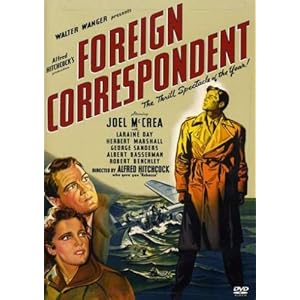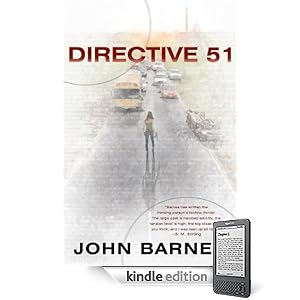
Though I consider my a Hitchcock fan, I've by no means seen all of his movies. I have always considered this one a "minor" movie, and never gotten around to watching it. We finally took the time and caught it on Netflix, and I am very happy with it.
Joel McCrea (later a major star in Westerns) is an American reporter sent by his paper to Europe as their foreign correspondent. Things are heating up, with war on the very near horizon (the movie was filmed in 1940). McCrea (playing Johnny Jones, but given the dom du plume of Hadely Haverstock by his publisher) witnesses an apparent assassination of a Dutch politician, and quickly finds himself with information about a spy ring. He's also falls in love with Laraine Day, playing the daughter of peace activist.
In a lot of ways, it's very typically Hitchcock, but as with much of his work, it's the details that make it shine. There's a handful of marvelous scenes (the escape of the assassin through a crowd of umbrellas, the cat and mouse in a Dutch windmill). McCrea is winning enough, playing a very "American" character, and Day handles her part well. There's also several standouts in the supporting cast. The action climax (on a plane traveling to America, under fire from a German battleship) suffers from the special effects, but is still effective.
The ending makes it a piece of war propaganda aimed squarely at Americans, but what the heck, we were about to fight the Nazis.
